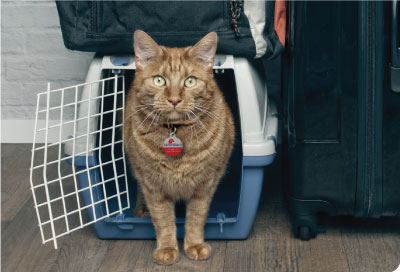
Your first step should be to become familiar with veterinary offices and kennels who offer boarding that are outside of your immediate area. In the event that disaster strikes when you are not home, you can also set up a buddy system with a neighbor. If you are unable to get home to your pet, your neighbor can evacuate your pet and their emergency kit, and you will do the same for your neighbor.
Just as you need an emergency kit, your pet should have one as well. Your pet should always wear some form of current identification, and/or be micro-chipped. Your kit should include the following:
- food
- bottled water
- bowls for food and water
- important vet records, including up to date vaccine records
- a photo of yourself with your pet in the event you are separated can help to prove ownership
- an extra leash, collar, or harness
- a secure carrier, the proper size for your pet
- any medications that your pet needs
- towels or bedding supplies
- litter, and any needed cleaning supplies
- an item your pet finds comfort in
- first aid kit
First aid kits can be purchased pre-made, or you can create your own in a secure storage box. Your first aid kit should include the following:
- gauze
- non-stick bandages
- medical tape
- a digital rectal thermometer
- hydrogen peroxide (3%)
- a large syringe
- bandage scissors
- saline solution
- Dawn dish soap
- quick stop
- vet wrap
- antibiotic ointment
- diphenhydramine
- Vaseline
- instant cold pack
- latex exam gloves
